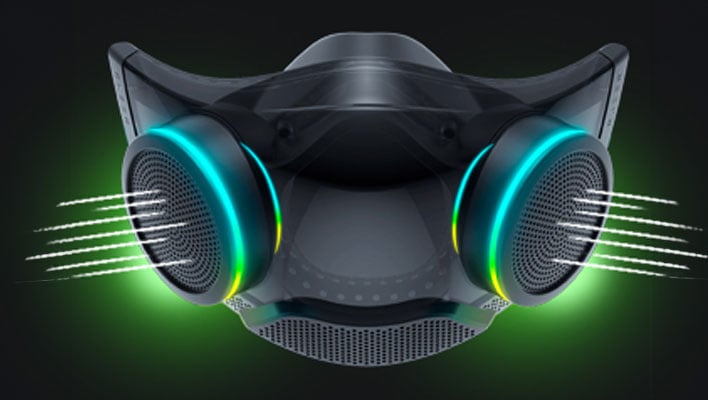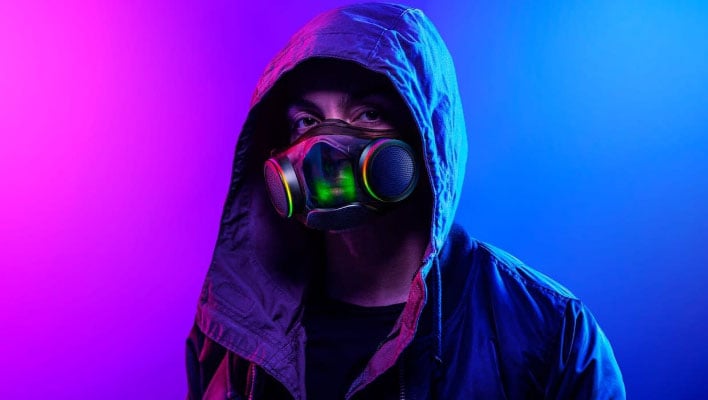Remember when Razer was selling an RGB face mask during the height of the Covid-19 pandemic? The peripheral maker raked in more than $1 million in sales from what was initially pitched as a mask with "replaceable N95 grade filters" but all that money must now be refunded to customers to settle a complaint by the Federal Trade Commission (FTC) over how the mask was marketed. Razer's also on the hook for a $100,000 civil penalty.
"These businesses falsely claimed, in the midst of a global pandemic, that their face mask was the equivalent of an N95 certified respirator," said Samuel Levine, Director of the FTC’s Bureau of Consumer Protection. "The FTC will continue to hold accountable businesses that use false and unsubstantiated claims to target consumers who are making decisions about their health and safety."
Razer first showed off the mask at the Consumer Electronics Show (CES) in 2021. At the time, it was a concept dubbed
Project Hazel. Not all concepts turn into actual shipping products, but Project Hazel did, with Razer naming the finalized product Zephyr.
Where Razer got itself in hot water with the FTC was by advertising the masks as being N95 grade. These claims appeared on the RGB mask's product page initially, along with social media posts and in videos posted to sites like TikTok, Twitter (
now called X), Instagram, Facebook, Discord, and YouTube. However, the FTC states that not only were the masks never certified as offering N95-grade protection, but Razer "never even submitted them for testing to the FDA or National Institute for Occupational Safety and Health (NIOSH)."
NIOSH is the agency that approves N95 respirators. To qualify, an N95 mask must be capable of filtering out 95% of airborne air particles down to 0.3 microns in size.
"Prior to the release of the Zephyr, Defendants’ consultants informed
Defendants that their product was not an N95 mask, would not be certified as an N95
mask, and would not provide a level of protection equivalent to a disposable N95 mask.
Nonetheless, Defendants made deceptive and misleading statements about the Zephyr,
advertising it using the term 'N95' and marketing it to consumers as a reusable N95
mask," the FTC stated in its
complaint (PDF).
The
FTC settlement requires Razer to fork over $1,071,254.33 for refunds, which is how much revenue the masks brought in, plus pay the aforementioned $100,000 civil penalty. Razer's also banned from making future products that purport to prevent or reduce the likelihood of transmitting Covid-19 without prior FDA approval.
Razer issued a statement denying any wrongdoing, adding that it never intended to mislead anyone.
"We disagree with the FTC’s allegations and did not admit to any wrongdoing as part of the settlement. It was never our intention to mislead anyone, and we chose to settle this matter to avoid the distraction and disruption of litigation and continue our focus on creating great products for gamers. Razer cares deeply about our community and is always looking to deliver technology in new and relevant ways," Razer said.
"The Razer Zephyr was conceived to offer a different and innovative face covering option for the community. The FTC’s claims against Razer concerned limited portions of some of the statements relating to the Zephyr. More than two years ago, Razer proactively notified customers that the Zephyr was not a N95 mask, stopped sales, and refunded customers," Razer added.



